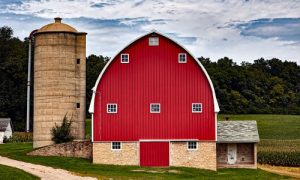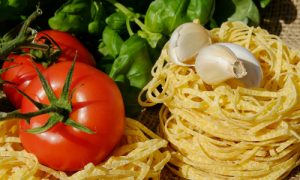While drought continues to trouble California, too much water is causing problems for farmers in the Midwest.
Heavy rainfall throughout the month of June means a number of fields in states like Missouri, Ohio, Illinois and Indiana spent time underwater. When so much rain hits, it holds farmers back from getting their crops in the ground, and can even kill off fields that have already been planted.
At the end of June, there were still five million acres of of corn and soybeans left to be planted across the country, according to the agricultural website AgWeb. It’s unlikely that farmers will be able to catch up planting beans so late into the summer season.
Certain states and crops have been hit especially hard. In Missouri, for example, only 73 percent of the state’s soybean were planted by July 5, compared to the state’s five-year average of 97 percent.
Corn and soybean prices are rising, and the USDA recently lowered its estimates for this year’s harvest, the Wall Street Journal reports.
The rainfall means a higher risk of major flooding in the area as well. AgWeb reports that parts of the central Midwest received as much as three to five inches above normal rainfall at the end of June.
This all comes when the region was not prepared for so much rainfall. The Washington Post reports that the flood risk in the Midwest could be underestimated by as much as five feet, citing a new study in the Journal of Earth Science.
Some rivers in the region reached record flood stage in June, getting so bad at one point that the Illinois River was closed to recreational boating.
To make matter worse, the National Weather Service’s Climate Prediction Center believes there is an even greater chance for above-normal precipitation across the region in July, AgWeb reports.
When farmers get behind in planting, it can be difficult and even impossible to catch up. That can lead to lower yields and, of course, less money come harvest.
For story ideas, talk to your local farmers. Regularly ask them where they are with planting their crops and how the weather has affected them lately. If you live in the Midwest, ask them how much rain has affected them this year.
Remember to find out if there was any major damage to crops in the area after severe weather and always keep an eye on the forecast as well. If you notice a pattern in the weather, chances are a local source will have something to say about it.
Make sure to check out our five tips for covering agriculture for a good primer on the beat. You can also attend our workshops at the upcoming AgMedia conference at the end of the month for more on covering agriculture.










